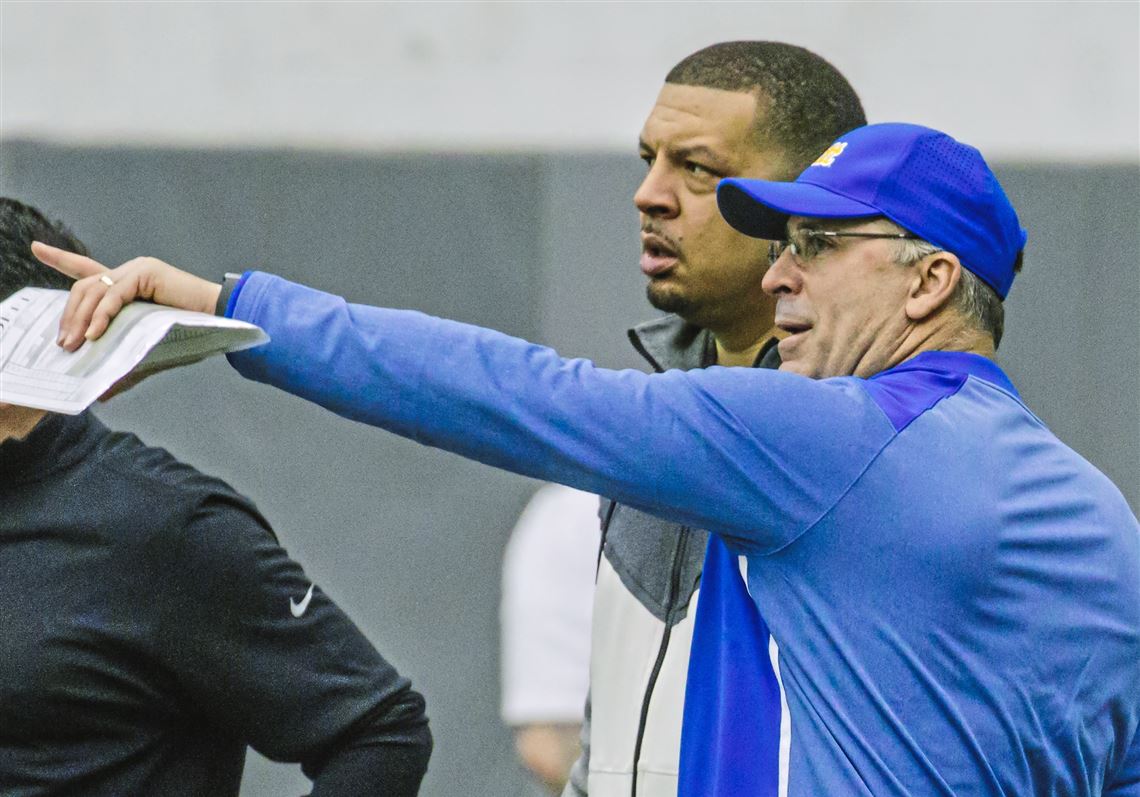It was September 2011 when Pitt officially announced it was leaving the Big East for the ACC. It has taken a lot longer for much of the fan base and many within the athletic department and Pitt community to warm up to that idea. Pitt had a long, glorious run in the Big East, so it was understandable that many struggled to divorce themselves from it.
It had to happen, though, this change in mindset, before Pitt could compete for ACC championships. The days of Madison Square Garden and battles with Connecticut and Villanova are long gone. So are annual football games against West Virginia. While I used to hear a lot of longing for those days — especially among old-guard Pitt fans — it finally seems to have gone away.
Under the leadership of athletic director Heather Lyke, Pitt looks and smells a lot more like an ACC school. Lyke hired ACC coaches who understand the conference, and who in turn will recruit the right players to lead the baseball, men’s basketball and women’s basketball programs. She also hired a soccer coach who has won two national championships and a wrestling coach who won an ACC title as an assistant at Virginia.
The programs just feel different — and the people leading them understand what it takes to win in the ACC. Pat Narduzzi came from a Big Ten program but quickly figured out the conference footprint and greatly expanded the Panthers’ recruiting in the Southeast — even into states like Georgia. Narduzzi and the Panthers won the Coastal Division this past season, and they appear to be just getting started.
It seems hard to believe, but not long ago a number of fans and even people around the school were predicting doom and gloom. They said the move would kill Pitt basketball, and that the football team couldn’t compete in the ACC. The Panthers would also struggle to compete in Olympic sports against southern-based teams.
Sure, the move hurt the basketball program — Jamie Dixon’s basketball program. And that’s one of the reasons he is at TCU; he had a great formula for recruiting in Northeast urban areas and developing players to win in the Big East. He, like a lot of people around him, had a hard time embracing the move to the ACC, and by the time he left, it showed.
Now, with Jeff Capel in charge, the sky again seems to be the limit. I am not at all saying Capel is a better coach than Dixon; Dixon is one of the best in the business. Capel, though, is an ACC guy who loves and embraces the conference and was taught how to win there by the godfather of ACC basketball, Mike Krzyzewski. Capel will recruit the kind of players necessary to win.
The baseball team is now guided by Mike Bell, who, like Capel, learned from one of the best of all time; he worked at Florida State under Mike Martin, the winningest coach in Division I baseball history.
Also, Pitt’s move wasn’t just smart — it was absolutely necessary. Anyone who doesn’t believe that should look at Connecticut, one of the schools left behind in the conference shuffle. Connecticut is stuck in the American Athletic Conference and has major budget issues. The school has contemplated dropping football and joining the Big East as a means of staying afloat. In fact, football coach Randy Edsall ponied up $150,000 out of his own pocket to give his offensive coordinator a raise.
Pitt doesn’t have the national cachet of Connecticut’s basketball programs, either, so imagine the shape it would be in if it hadn’t gotten selected by the ACC. It was the perfect spot for Pitt among Power 5 conferences.
So, it has taken some time, and there have been some bumps in the road, but Pitt’s transition to the ACC feels like it is complete. The athletic department has embraced it, the coaching staffs have embraced it, and the fan base, at the very least, understands it. The next step is for Pitt to win with regularity and compete for ACC championships — and unlike four or five years ago, it is finally poised to do just that.
Paul Zeise: pzeise@post-gazette.com, Twitter: @PaulZeise
First Published: February 15, 2019, 5:46 p.m.























